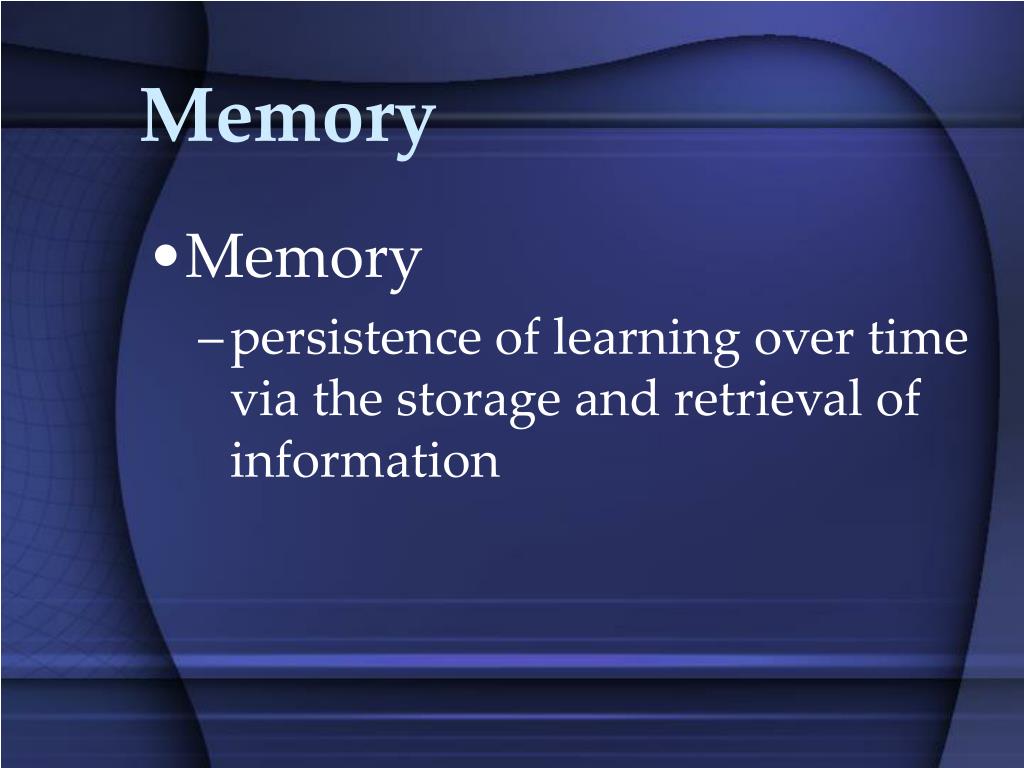

These lapses in memory are caused by breaks in attention or our focus being somewhere else.Ĭynthia, a psychologist, recalls a time when she recently committed the memory error of absentmindedness. We are all prone to committing the memory error known as absentmindedness. Your memory for new information decays quickly and then eventually levels out.Īre you constantly losing your cell phone? Have you ever driven back home to make sure you turned off the stove? Have you ever walked into a room for something, but forgotten what it was? You probably answered yes to at least one, if not all, of these examples-but don’t worry, you are not alone. Due to storage decay, an average person will lose 50% of the memorized information after 20 minutes and 70% of the information after 24 hours (Ebbinghaus, 1885/1964). The result is his famous forgetting curve (Figure 2).

He tested himself over different periods of time from 20 minutes later to 30 days later. Then he measured how much he learned (retained) when he attempted to relearn each list. First, he memorized lists of nonsense syllables. In 1885, German psychologist Hermann Ebbinghaus analyzed the process of memorization. What is going on here is storage decay: unused information tends to fade with the passage of time. I know I read the book in high school, and I remember that one of the main characters is named Scout, and her father is an attorney, but I honestly don’t remember anything else.” Nathan wonders if his mother actually read the book, and his mother is surprised she can’t recall the plot. Nathan asks her what the book is about, and after some hesitation she says, “Well. Nathan comes home from school and tells his mom he has to read this book for class. Nathan’s English teacher has assigned his students to read the novel To Kill a Mockingbird. Let’s look at the first sin of the forgetting errors: transience, which means that memories can fade over time. Memories distorted by current belief system Recalling a dream memory as a waking memory Schacter’s Seven Sins of Memory SinĪccessibility of memory decreases over timeĪccessibility of information is temporarily blocked He calls them the seven sins of memory and categorizes them into three groups: forgetting, distortion, and intrusion (Table 1). Psychologist Daniel Schacter (2001), a well-known memory researcher, offers seven ways our memories fail us.

Can you tell which coin, (a), (b), (c), or (d) is the accurate depiction of a US nickel? The correct answer is (c). If we don’t encode the information, then it’s not in our long-term memory, so we will not be able to remember it.įigure 1. We only encode enough information to be able to distinguish it from other coins. Most of us never encode the details of the nickel. The reason is most likely encoding failure. nickel looks like? When researchers Raymond Nickerson and Marilyn Adams (1979) asked this question, they found that most Americans don’t know which one it is. Can you accurately recall what the front of a U.S. For instance, think of how many times in your life you’ve seen a nickel. Often, in order to remember something, we must pay attention to the details and actively work to process the information (effortful encoding). This would be like trying to find a book on your e-reader that you never actually purchased and downloaded. We can’t remember something if we never stored it in our memory in the first place. Sometimes memory loss happens before the actual memory process begins, which is encoding failure. But why do we forget? To answer this question, we will look at several perspectives on forgetting. As you’ve come to see, memory is fragile, and forgetting can be frustrating and even embarrassing. We all forget things, like a loved one’s birthday, someone’s name, or where we put our car keys. Forgetting refers to loss of information from long-term memory. “I’ve a grand memory for forgetting,” quipped Robert Louis Stevenson. Examine common memory errors (such as transience, absentmindedness, blocking, misattribution, suggestibility, bias, persistence, and interference).


 0 kommentar(er)
0 kommentar(er)
